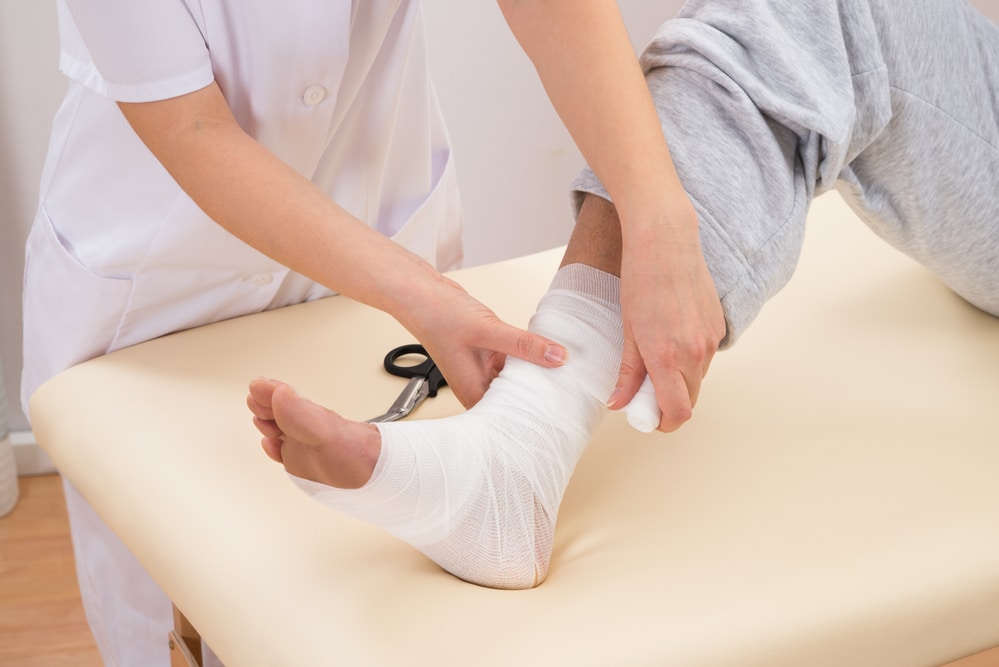Skin Abscess & Wound Care In Nashville, TN
A foot wound is an injury caused by abrasions or cuts. It can get severe, so it needs immediate medical attention. A foot wound is damage or injury to the underlying tissue or the skin of the foot. Around 7 million Americans live with chronic wounds; feet are one of the most affected parts. Though foot wounds can get severe, there are many treatment options to relieve pain and resolve the issue.
Types of Foot Wounds
There are two main types of foot wounds commonly found in Memphis, TN patients: foot ulcers and diabetic foot ulcers. The primary difference between them is diabetic foot ulcers are common among diabetic patients, while anyone can experience foot ulcers. Also, diabetic foot ulcers are caused by nerve damage, while foot ulcers are developed due to poor circulation. Booth types of wounds can impact your daily life and prevent participation in sports or simple activities like walking.

Foot Ulcers
They are open lesions or sores that don’t heal long. These lesions develop from the breakdown of the tissues and skin of the ankle and feet and can get infected.
Causes
- cellulitis, a bacterial infection
- trauma to the toe or foot
- poor circulation
- unusually formed toes
- peripheral arterial disease
Symptoms
Symptoms of foot ulcers can lead to burning, swelling, and pain. You can also notice an ulcer appearing on your foot and discharge coming out from your foot.
Treatment
- antibiotics
- topical wound care
- compression clothes
- draining of wound
- anticlotting or antiplatelet medications
- orthotics
- prosthetics
Prevention
You can prevent foot ulcers by daily foot inspections for cuts, ingrown toenails, blisters, and scratches. Wearing quality footwear, checking blood sugar levels regularly, and tobacco cessation are also best practices for prevention. Keeping your feet dry and clean and regular podiatry check-ups can also help patients.
Diabetic Foot Ulcers
A diabetic foot ulcer is an open wound or sore that develops in around 15% of diabetic patients. They commonly appear on the bottom of the foot. Unlike foot ulcers, this problem only occurs in patients with diabetes and takes more time to heal after a proper treatment plan.
Causes
- poor glycemic control
- improper foot care
- ill-fitting footwear
- dry skin and poor circulation of the foot
- underlying peripheral neuropathy
- foot deformities
Symptoms
One of the common symptoms is drainage from the foot that may leak out in your shoe or strain your socks. Some common symptoms are irritation, redness, swelling, and bad odor from feet.
Treatment
- Prevention of infection
- antibiotics
- Removal of dead tissue and skin, known as debridement
- taking the pressure off the affected area, known as off-loading
- managing blood glucose levels and other health conditions
- applying dressings or medication to the ulcers
Prevention
The simplest way to prevent diabetic ulcers is the prevention of infection. You need to cleanse the wound daily if it occurs with a bandage or wound dressing. If you have diabetes, avoid walking barefoot and participating in any activity that can injure your foot.
Risk Factors for Foot Wounds
Age
Older adults have more risks because their skin becomes less elastic and thinner as they age, increasing the risk of foot wounds.
Diabetes
High blood sugar levels can damage blood vessels and nerves in the feet.
Poor Circulation
Lower blood flow in the feet increases the risk of infection and impacts healing.
Neuropathy
Nerve damage in the feet results in a loss of sensation, preventing you from noticing injuries and increasing the risk of foot wounds.
Treatment of Foot Wounds in Memphis, TN
Available Treatment
Medications, surgery, or wound dressings are some medical treatments that can help.
Importance of Early Treatment
Contacting the doctor as soon as possible can prevent getting your wound severe. They can start cleaning and treating a wound, which prevents complications and fast wound healing.
Home Care Tips
Keeping your wound dry and clean, changing your dressing regularly, preventing putting pressure on your foot, and taking medications are home care tips that can help you.
Self-Care Measures
Exercising regularly, maintaining a healthy diet, avoiding smoking, and wearing quality shoes can help prevent and treat the wound.
Regular Podiatry Check-Ups
Podiatry check-ups can help you identify wounds at an early stage. This helps prevent severe foot wound conditions.
Conclusion
Foot wounds can get severe, so it’s important to get them treated as soon as possible. Early treatment and diagnosis can help treat the wound fast and help you keep your feet healthy. Our team of podiatrists is available for telehealth visits through our portal. Click our Book Now button to schedule a call.

